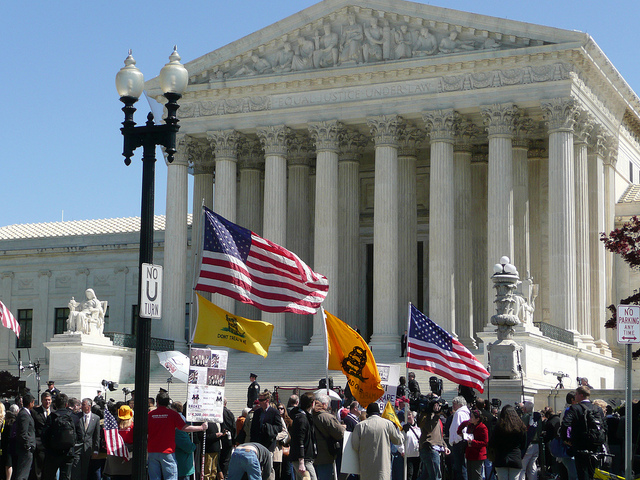
Earlier this month, South Dakota’s Attorney General Marty Jackley petitioned the U.S. Supreme Court to rule on the state’s internet sales tax that the state Supreme Court struck down this September.
In what may become a landmark decision, the U.S. Supreme Court will determine the constitutionality of an internet sales taxes, hopefully ruling in favor of taxpayers and in support of federalism.
In March of 2016, Governor Dennis Daugaard of South Dakota signed the massive sales tax into law.
Senate Bill 106, required out-of-state sellers to collect a sales tax on South Dakota’s buyers, and then forced these sellers to hand over those tax dollars to the state of South Dakota.
Worst of all, under the law, the seller didn’t even need to have a physical presence in state, yet, were still subject to the overbearing measure.
Under the law, businesses were strong-armed into taking on the role of tax collector. In shifting the tax burden onto business owners, they were required to file dozens of complicated reports detailing their transactions- wasting money, time, and, resources, making it even harder for less advantaged mom-and-pop shops to compete.
With that, the law raised the prices on consumer goods, subjecting hard-working South Dakotans to greater financial struggle.
To great concern, similar measures have been proposed in the U.S. Congress, mainly the Marketplace Fairness Act, championed by Sen. Tim Kaine (D-V.A.).
In 1992, the court ruled in Quill Corp. v. North Dakota that it was unconstitutional to require retailers with no in-state presence to collect and remit a sales tax.
If they do take up the case, the court will either decide to overrule this previous precedent, opening the floodgates to massive tax increases across the board, or, choose to prioritize the rights and sovereignty of American taxpayers by upholding the 1992 ruling.

